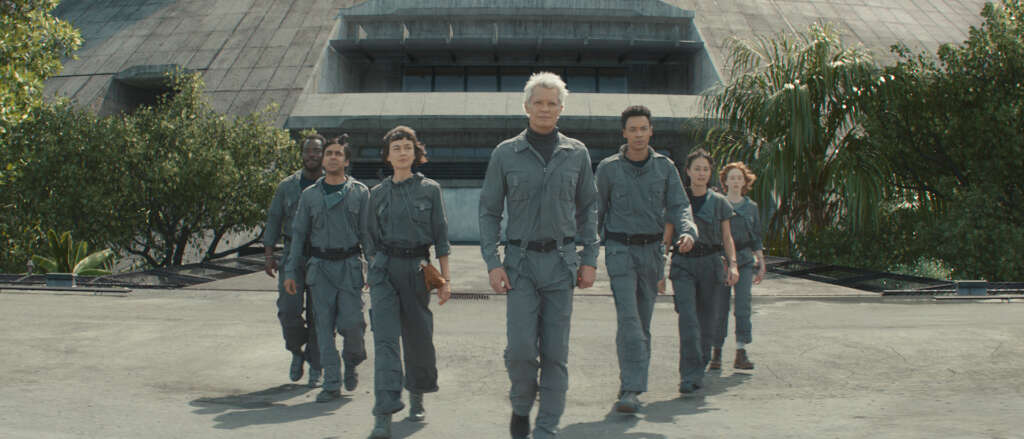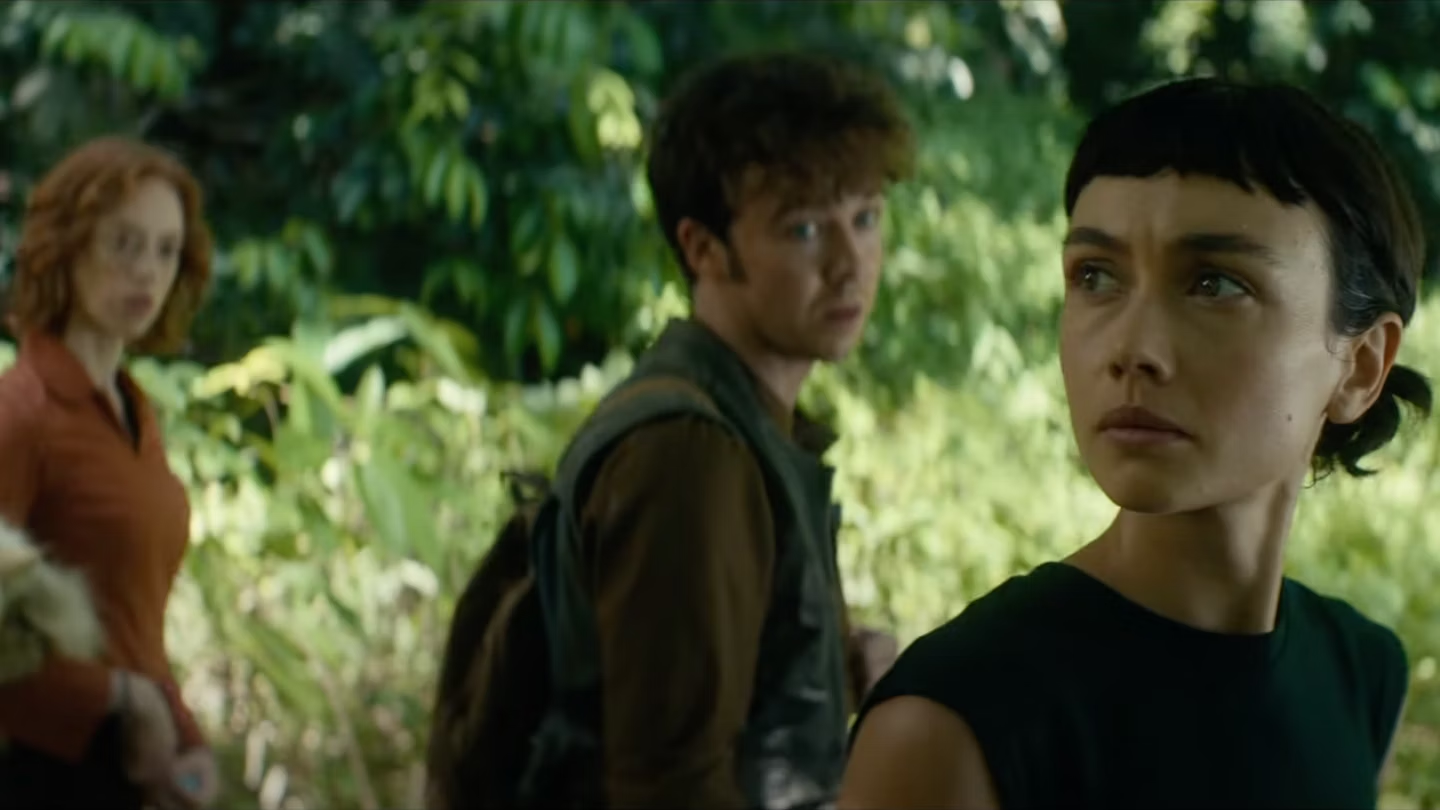Episodes watched: 6 out of 8
In a time of spin-offs, reboots and prequels galore, Alien: Earth doesn’t just justify its place; it earns it. This isn’t a retcon, and it’s certainly not a rehash. Noah Hawley takes the dusty bones of a legendary franchise and breathes into it something braver, stranger, and smarter than anything it’s hosted in years.
This is Alien by way of Fargo: deep, unnerving, layered, and, above all, necessary. Something you can’t say for many new entries into long-standing IPs, especially after last year’s technically solid but thematically redundant Alien: Romulus. That film may have been well made, but did it enrich the universe? Not particularly. This one does.
What Hawley has managed to do here is bring back the fear, not just of the monster, but of the machine. Set in 2120 (two years before the events of the original Alien), Earth is suffocating under corporate weight, and from the moment the USCSS Maginot crash-lands, we’re introduced to a new breed of terror – not just the iconic Xenomorph, but giant flies, vampire mites, octo-eyed horrors (work in progress on the names!) and more, all fighting for screen time and space in your nightmares. But Hawley doesn’t throw them at the screen. He laces them into the story like a rot, slow, creeping, and sticky.
Front and centre is Sydney Chandler’s Wendy, a synthetic hybrid with the mind of a terminally ill child now bound to a robotic, super-soldier type adult body. It sounds mad, and it is, but she sells it completely with wonder and horror pinging off her every movement as she tries to understand the grim, Prodigy-controlled world she’s inherited. Around her are the rest of the ‘Lost Boys’, tween-minded synthetics navigating adulthood under the guidance of Kirsh, a mysterious overseer played by Timothy Olyphant. The usual Olyphant charisma is deliberately replaced here with something colder, less wry sheriff, more steel trap. His intentions remain just murky enough to keep the viewer on edge, and there’s something almost David-like (Michael Fassbender in Prometheus & Alien: Covenant) in his stillness, his curiosity and his dangerous grace.

Then there’s the smirking cruelty of self-anointed “boy genius” Boy Kavalier, leader of the Prodigy company. Samuel Blenkin plays him with an oily charisma and a dressing gown collection that deserves its own spin-off. His obsession with the alien species is only matched by his obsession with himself.
Wendy’s emotional grounding comes in the form of her brother, a medic for Prodigy, played with quiet, steady charm by Alex Lawther. His reintroduction into Wendy’s new world gives the show just the right amount of heart before things get properly horrific. And they do, with their reunion spoiled by everyone’s favourite eight-foot menace.
Episode five, a standalone look at the cargo ship crash, is a masterclass in tension, world-building, and smart horror pacing. It’s also, somehow, maybe the third-best Alien movie ever made, with Hawley managing to squeeze more from a single hour of TV than many of the feature-length outings in the series’ history.
The horror is wonderfully gross. Eye-popping in every sense. But it’s not just the gore that lands; it’s the atmosphere. The show looks phenomenal. You can see every bit of its budget on screen, from the labs to the streets, all rendered in that eerie, clinical tone Hawley seems to thrive in. Comparisons will no doubt be made to ‘Andor’, another slow-building, beautifully realised prequel that proves sometimes the best way to serve a long-standing franchise is to expand it, not simplify it. It also carries a distinct echo of Westworld‘s first season, both in how it builds its world with quiet precision and how it explores identity, consciousness, and control beneath its slick sci-fi shell.
It remains to be seen if the show can stick the landing like Westworld’s inaugural season did, with multiple storylines still moving and plenty of threads to tie. But so far, Hawley’s balancing act of lore, body horror, and existential dread is paying off. The Xenomorph may no longer be the only creature in the dark, but when it shows up, it still matters.
Verdict
Alien: Earth doesn’t try to outdo what came before — it evolves it. The result is a show that’s thrilling, thought-provoking, and more alive than anything this franchise has dared to attempt in decades.




